9 Master is a tribute to cultural and religious diversity. Nine representative members from nine historically grown religions of the world, all based in Berlin, express their views on fundamental questions of the human mind and the human condition. Pictures and music from liturgical practice of the various faith communities underline the answers of the protagonists. From nine different angles and 120 hours footage a document of religious life in the big city was created.
This film doesn’t claim to fully represent the masters or the religions they belong to, neither does it aim at discussing the religious dogmas and doctrines like a textbook. Nine Masters is rather a representative cross-section of the religious „offer“ present in Berlin today. At the same time the film wishes to promote the fruitful dialogue among the cultural as well as aesthetic, philosophical, ethnic, ethical and social diversity of the city. From the huge religious heterogeneity, which Berlin fortunately is offering again in this early twenty-first century, nine communities and their representatives were chosen according to subjective criteria. This film could come about thanks to the generous participation of all protagonists and their patient cooperation, as well as to the the support and the hospitality provided by community members.
The footage for this documentary was recorded between 2010 and 2015 in Berlin. In the shadow of the fatal Nazi era and the anti-religious regime of the GDR, in more recent years the city experienced a period of bourgeois-emancipatory secularization and is today considered to be secular – more than ever so, even applying for the title of „Capital of atheism „. At the same time Berlin is also one of the places in Europe with the greatest religious diversity. Migration, globalization, cultural exchanges have transformed world cities as the German capital in the last few decades into cosmopolitan and multi-ethnic melting pots.
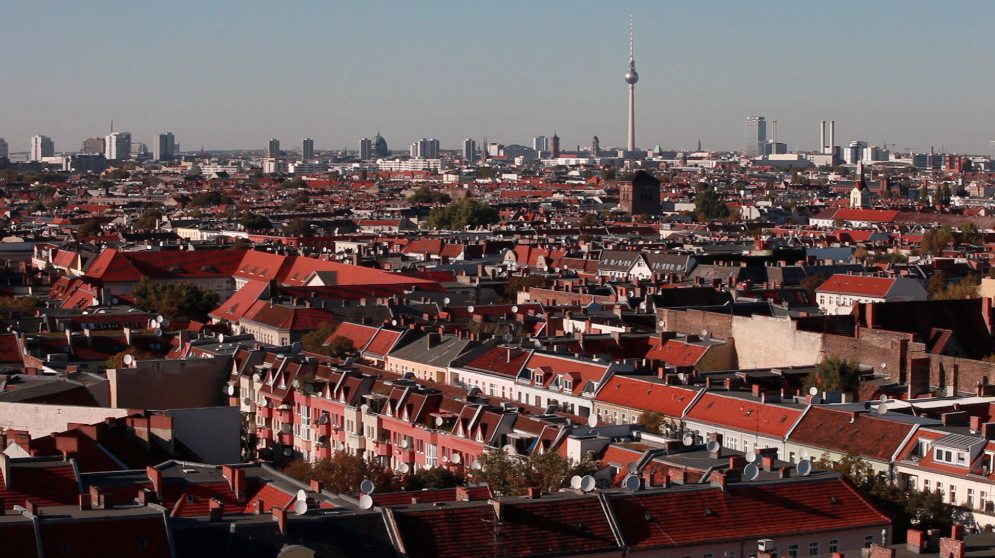
9 Masters is a documentary approaching nine different religions (Judaism, Hinduism, Thai Buddhism, Roman Catholic Church, Russian Orthodox Church, Islam, Evangelic Church, Zen Buddhism, Candomblé) and nine of its representatives in an unbiased manner. Priests, monks, gurus, masters, imams, rabbis and nuns act for the good of spiritual seekers and believers, for the cohesion of their community, for the conservation and the development of their own tradition. In their office they represent the faith and the philosophy to which they belong, providing spiritual foundation and cultural identity.
Why do human beings need religion? What drives them to submit themselves to the teachings, rules and obligations of a specific worldview? Is this done out of a natural, maybe God-given urge? Or to pursue personal development? How important are family ties, tradition and habits? Do people need religion in order to better cope with the conflicts and difficulties of human life? Is it clear rules, behavioral precepts and values what they are looking for? Or maybe a community of like-minded people to avoid loneliness? Do people need religion at all? Isn’t God dead? Isn’t autonomous thinking better than faith?
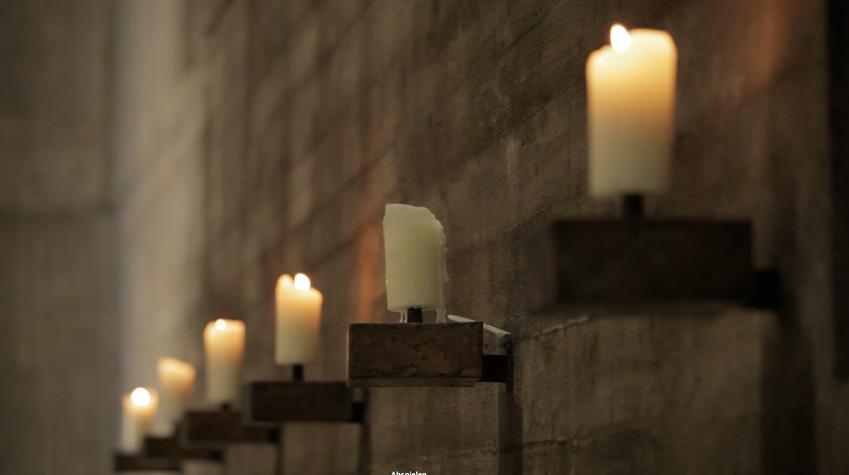
Religion. In the public debate at the beginning of the 21st century the term evokes the most diverse associations. It produces opposite reactions and statements, ranging from absolute devotion to the sharpest criticism and rejection. In the media the issue is often discussed in the context of current social, political, financial or even military aspects, when not of a conflict between religions themselves. The actual teachings and principles of the different faiths, however, their diversity on the one hand, the possible intersections and similarities on the other, receive much less attention in the discourse and disappear from the screens.
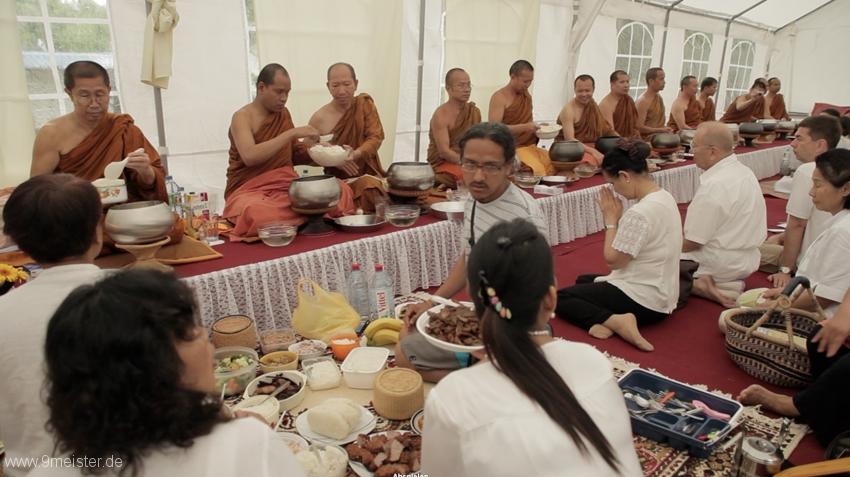
And yet, independently of ones own beliefs, religion is the very basis of our community as an archetypal, cultural and psychical phenomenon. This is true for any community: religion represents the intimate structure of the collective unconscious. Beliefs shape people, they influence education, socialization and world views – and make individuals similar or different to each other.
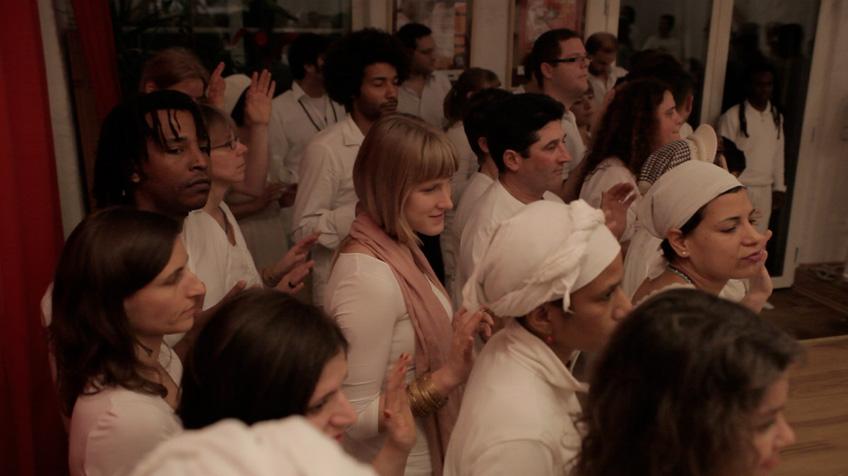
9 Masters is an immersion animated by unprejudiced curiosity into nine different communities, worlds and cultures that live side by side a few kilometers away from each other. Behind our project is probably the most important inter-religious thought: dialogue, the ability to listen, respect, a peaceful attitude and a willingness to mutual learning, as well as the recognition of differences and the preservation of the own identity are the basis of a harmonious and equitable coexistence. Away from conversion desires, hegemony claims, demands of truth and knowing better, a group of people from different cultural backgrounds explain their thoughts around religion, God, life and death.

The film is not limited to a philosophical-theoretical reflection, on the contrary, this is embedded in lived reality: images from the liturgy and practice of the communities underline the answers of the protagonists and give a concrete reference to all discussed subjects. City- and street shots of Berlin, as geographical and cultural container of all presented protagonists, illustrate the relationship to the material world. The result is a second story level and simultaneously a dramaturgical framework for the interviews. Moreover, the film presents a rich variety of liturgical music, which is of fundamental importance in almost all faith traditions.
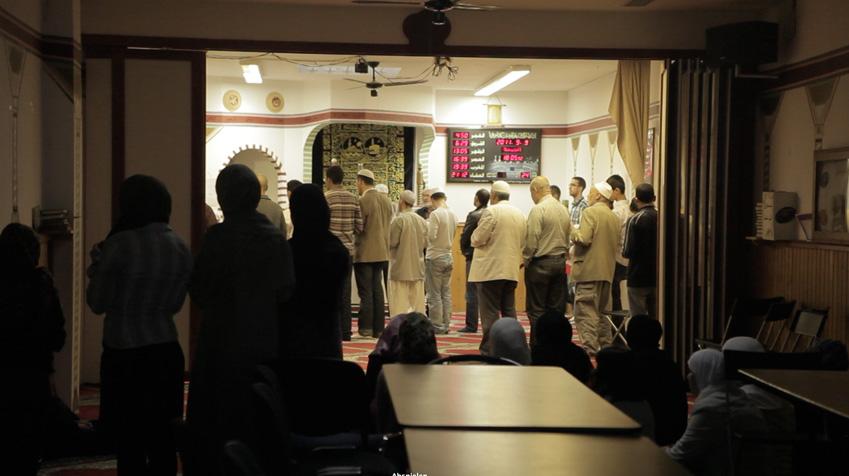
The peaceful coexistence between people from different cultures has never been granted on our planet. Tensions, unrest, intolerance, racism and violence, power games and war historically characterize the ideas of encounter with the stranger. Today the world changes confusingly and with seemingly exponential rate. In the early 21st century our planet has become so small as never before. In the age of geopolitical and economic globalization people, goods and information travel on high velocity through borders, over states and continents.
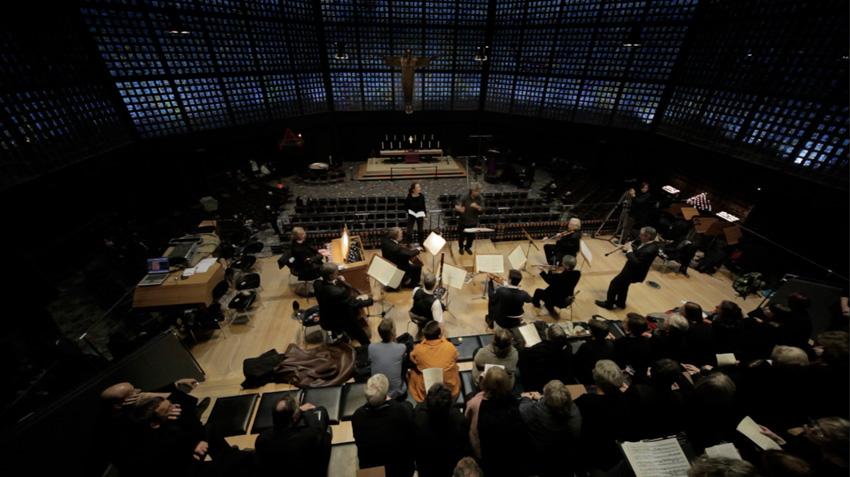
Cities of diverse terrestrial binding powers on all continents developed into crucibles of different cultures and identities. The intensely felt moment of an accelerated global networking throws spotlights on our past as well – also and especially on the history of our religious mentality, on our existence as material-spiritual beings. Beside individual salvation religions always had to find answers to clashes of cultures and to offer effective solutions to mental and emotional exchange between people from different backgrounds.
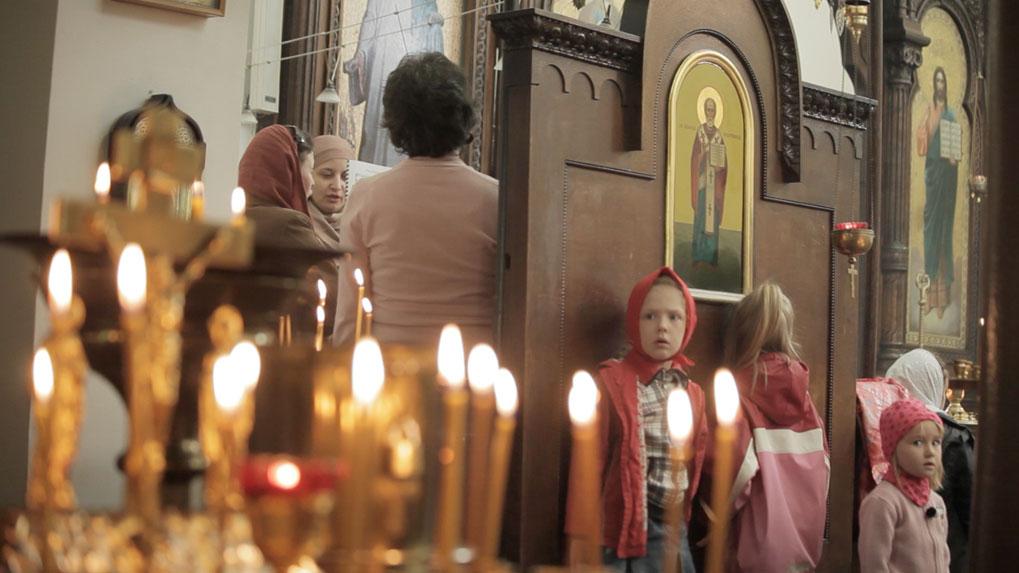
Many are the factors that shape the religious identity of the individual – historical, linguistic, socio-cultural (inter alia). They characterize the idiosyncrasies of people as well as their relationships. In any native environment the current expected identity features for individuals are considered „normal“, mostly carried by a majority, accepted by society, practiced jointly. In the state of migration, where the own identity and relationships experience tension between adaptation and preservation, the individual has to undergo a drastic change comparable to a tree replanted suddenly is exposed to a new soil and an unfamiliar air. Hopefully in company of family members or other fellow sufferers, in worth cases alone – each time an existential challenge that needs to be faced.
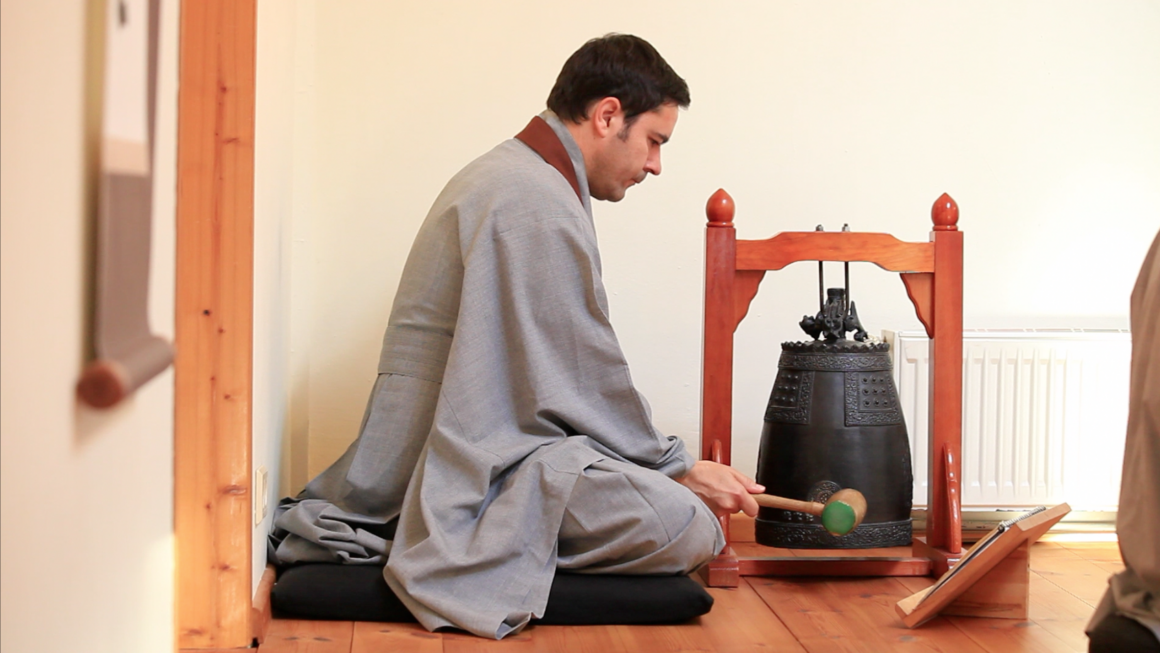
9 Masters focuses this issue specifically on religious aspects of the current socio-cultural clash. Nine representatives of different religions give their response by presenting themselves and explaining their religious communities.
Country of Origin: Germany
Language: English, German, Russian, Thai (German and English Subtitles)
Production year: 2011-2017
Shooting location: Berlin
Length: 111 minutes
Written, directed and produced by: Fabio Dondero
Co-directed by: Bernd Sandner
Camera: Christoph Kube
Second camera: Fabio Dondero
Other Camera: Bernd Sander, Gunar Otto, Anastasya Peganova
Sound: Gunar Otto, Felix Rakovsky, Christoph Kube, Bernd Sandner
Editing: Fabio Dondero
Assistant Editor: Alexandra Goloborodko, Antonio Paucar, Chiara Somajni
Color Correction: Pirates’N Paradise Berlin, Catherine Weber
www.piratesnparadise.de
Johannn Sebastian Bach
„Bereitet die Wege, bereitet die Bahn!“, BWV 132
Heinrich Schütz
„O lieber Herre Gotte“, SWV 381 from „Geistliche Chormusik“ 1648
Soprano: Christina Roterberg
Bass: Jörg Gottschick
Positive organ: Christian Schlicke
Organ: Helmut Hoeft
Bach-Choir at the Kaiser Wilhelm-Gedächtnis-Church
and Bach-Collegium Berlin
Direction: Achim Zimmermann
„Mittagsgebet“
Choir of the Karmel Regina Martyrum
Liturgical songs
Cantor: Isaak Sheffer
Choir and musicians of the Synagogue Pestalozzistrasse
Bhajan Concert
Swami Mangalananda
Swami Gurusharananda
Choir of the Russian-Orthodox Christi-Auferstehungskathedrale Berlin
Sufi songs
Singers and musicians of the House of Wisdom e.V.
Ile Obá Sileke
Musicians and singers of the Candomblé Temple
Karin Dondero, Nils Cornelissen, Imke Wangerin, Alexandra Goloborodko, Karsten Waldes, Kai Laufen, Vlado Baldasar, Liane Chamsai, Kilian Bartikovski, Jürgen Kisch, Tania Inowlocki, Claudio Bohorquez, Alexander Filyuta, Barbara Klinker, David und Anna Nauer, Biljana Djurdjevic, Nir Evron, Aharon Ozery, Chiara Somajni, Friederike Hechler, Maria Polushkina, Anastasya Peganova, Yann Bongiovanni, Daniel Flores, Stu, Violeta Lopiz, Antonio Paucar, Vladimir Speransky, Sophie Decker, Maria Magdalena Wiesmaier, Hayden Chsiholm, Riccardo Valsecchi, Tina Roj, Dominik Breider, Tobias Breider, Julian Karaguesian, Tuk, Fabio Romano, Vilwanathan Krishnamurty, Hanumaiah Vaidyanathan, Dr. Vivek Lugani, Viney Lugani, Zen Meister Grazyna Perl, Adam Perl, Nicholas Perl, Mathew Perl, DM Namhee Chon, Zen Meister Roland Wöhrle-Chon, DM Arno Schäfer, Michael Wilz, DM Jo Potter, Elisabeth Illgen, Silke Plener, Wilfried Rahn, Jörg Gottschick, Christina Roterberg, Acharya Mangalananda, Dorothea Wagner, Noemi Hampel, Lars Brooksiek, Wolf-Dietrich Patermann, Susanne Völz and many more
Gib dein Suchwort ein und drücke Enter.